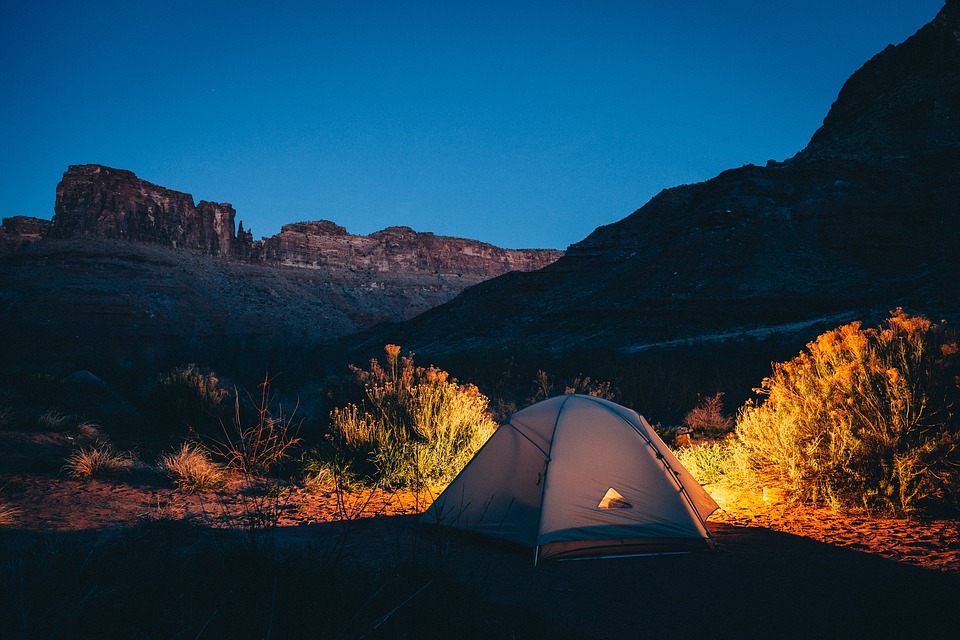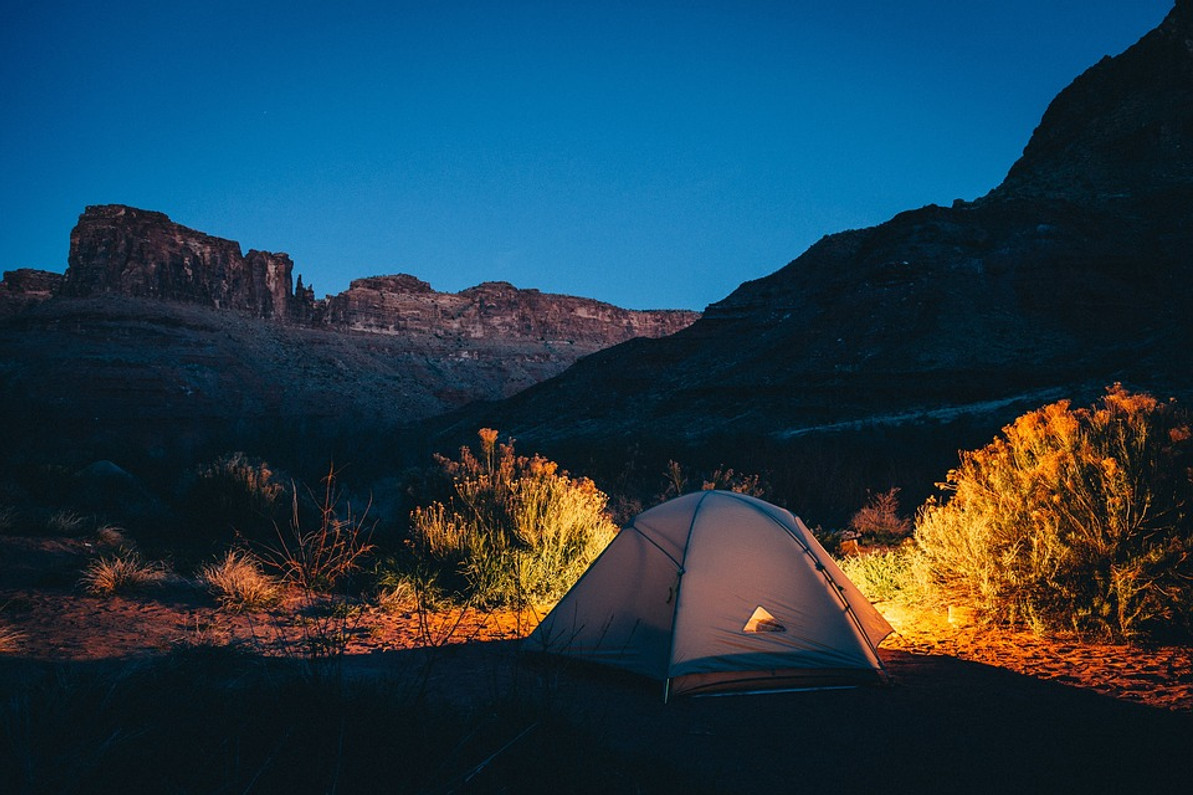6 Essential Safety Tips to Follow When Camping

There's no better way to unwind and relax than by camping in the great outdoors. You'll breathe in fresh out while experiencing the sights and sounds of Mother Nature. When camping, however, you should take the necessary precautions to protect against injury. When you're deep in the woods -- or elsewhere -- you may encounter several potential hazards. The good news is you can stay safe while camping by following these six tips.
#1) Bring the Right Clothing
Whether you're going camping for one night or an entire week, you need to bring the right clothing. Consider both the temperature and weather, and choose clothes that are appropriate. If there's rain in the forecast, you'll obviously need to bring a raincoat. On the other hand, if the temperature is expected to be 90s, you'll need to bring lightweight and loose-fitted clothes.
#2) Pitch Your Tent Near a Windbreak
When scouring the area for a potential campsite, look to see if there are any natural windbreaks nearby. You want to pitch your tent near a windbreak so that it doesn't blow away from strong winds. If you pitch your tent in the open, a strong wind gust could topple your tent, which may result in injury if you're sleeping inside when this happens.
#3) Wear Insect Repellent
If there's one item that you don't want to leave at home when camping, it's insect repellent. From mosquitoes and gnats to wasps and ticks, pests can turn an otherwise pleasant camping trip into a nightmare. Thankfully, insect repellent will keep these pests off your skin so that you can enjoy your camping trip.
#4) Don't Use Gas or Lighter Fluid to Start Your Campfire
Never use gas, lighter fluid or any other accelerants to start your campfire. If you're struggling to your campfire going, use tinder and kindling instead. Small pieces of tinder and kindling should easily ignite, allowing you to get your campfire going.
#5) Extinguish Your Campfire With Water
While speaking about campfires, it's worth mentioning that you should extinguish your campfire with water before hitting the sack at night. Even if a campfire is no longer burning, it's probably hot enough to spark a fire. If brush or debris blows into the campfire, for example, it may ignite to create a new fire. Therefore, you should extinguish your campfire with water at the end of the night.
#6) Stay on the Trail
If you're camping in a park or other area with marked trails, don't venture away from the trail. Some people have a tendency to explore unmarked paths, and while this sounds harmless, it could result in you getting lost. To ensure a safe and enjoyable camping experience, stay on the trail at all times.
Recent Posts
-
Fire Safety in the Workplace: What You Need to Know
What steps are you taking to prevent fires in your workplace? According to the U.S. Occupational Saf …Aug 23rd 2023 -
Is It Safe to Go Jogging With a Cold Infection?
If you're suffering from a cold infection, you might be wondering whether it's safe to go jogging. T …Aug 22nd 2023 -
5 Safety Tips to Follow When Using a Powder-Actuated Tool
Powder-actuated tools are commonly used to join materials to steel and concrete. Also known as Hilti …Aug 20th 2023




